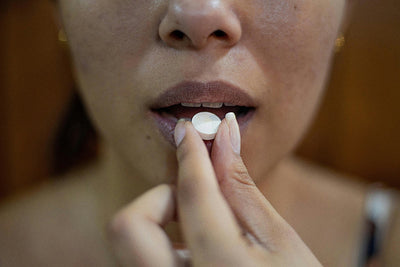What does “Breast Milk is Conditionally Perfect” Really Mean?
What Does “Breast Milk is Conditionally Perfect” Really Mean?
By Katie Black
You’ve probably heard the phrase, “breast milk is the perfect food” before. The intentions behind the sentiment by the unknown originator were almost certainly good, but in reality breast milk is a bit more complicated.
While many people are still under the assumption that all breast milk provides the most ideal and perfect nutrition for infants, our research over the last 5 years has shown otherwise. We're not saying that breast milk isn't perfect; we’re suggesting that it changes significantly from mother to mother and we need to correct the impression that breast milk is inherently perfect. Instead, there are some shortcomings which proper diet and self care can fix.
Here at Location Lab we are on a mission to take the guesswork out of breastfeeding and help moms provide the best nutrition for their babies. What we have found aligns with Miriam Erick's statement in an article from 2018; “Breast milk is conditionally perfect.” In other words, breast milk’s nutritional content is dependent on conditions such as diet.
So what can happen in milk from day to day and even feed to feed?
Here are some of the way milk composition can alter (or stay the same) depending on diet and lifestyle:
Immune Cells:
Within breast milk are different types of immune cells. They are essential for developing an infant’s immune system which will protect them against infectious diseases. Some of the different types of these cells such as macrophages and neutrophils can change throughout the day depending upon mom's health.
Macronutrients:
Fat, protein and carbohydrate content within breast milk can all be affected by a mom’s nursing frequency, weight, menstrual cycle, and diet. Proteins are made from chains of amino acids and they are vital for a baby's growth and development. In studies looking at lactating mother’s diets which were poor in either animal or soy protein, their milk was low in certain amino acids such as lysine, threonine, and valine.
Fatty acid composition is quite variable from feed to feed, with fat content increasing in hindmilk. Additionally, increased consumption of healthy fats (like omega-3) has been shown to increase in breast milk as well.
Vitamins and Minerals:
In many cases, mom's levels do not equal milk levels. Certain vitamins and minerals are 100% dependent upon a mother’s status but it's unclear why there's a one-to-one relationship with some and not others. One explanation has to do with the metabolism within the mammary gland tissue and this is why there is not a complete transfer of vitamins to milk. An example of this are allergies; it is not yet understood why some women who consume copious amounts of egg protein and wheat don't suffer from any allergies themselves but despite exclusively breastfeeding and doing everything by the book, their child suffers from severe eczema, asthma, and allergies. It’s believed that the metabolism within the mammary gland tissue actually breaks up these proteins and some infant's immune systems are not able to identify the protein's antigens (foreign molecules) so they do not produce the appropriate antibodies needed to ensure that they are not allergic.
It's the same thing with vitamin B12. Over the years we have found that there's not a direct correlation between maternal blood level of B12 and what appears in milk. This has to do with different levels of metabolic absorption and transference into milk.
It is a biological impossibility for lactating women to transfer nutrients via breast milk that she herself does not have. That being said, we have also found the minerals zinc, copper, selenium, sodium, and potassium do not significantly change over time nor are significantly affected by a mom's intake.
The bottom line is, while breast milk generally remains the best source of food for infants, a healthy, balanced diet is essential for producing optimal breast milk. Above all, breastfeeding moms need to prioritize:
- Self-care, (rest, managing stress, and exercise for example)
- Lots of hydration
- Iron-rich meals
- Vitamin C
- Vitamin B12
- Vitamin A
- Healthy fats.
- Animal or soy proteins
Check out the Emily’s Care app for recommendations or order your own breast milk test here to learn about your milk’s nutritional content.






